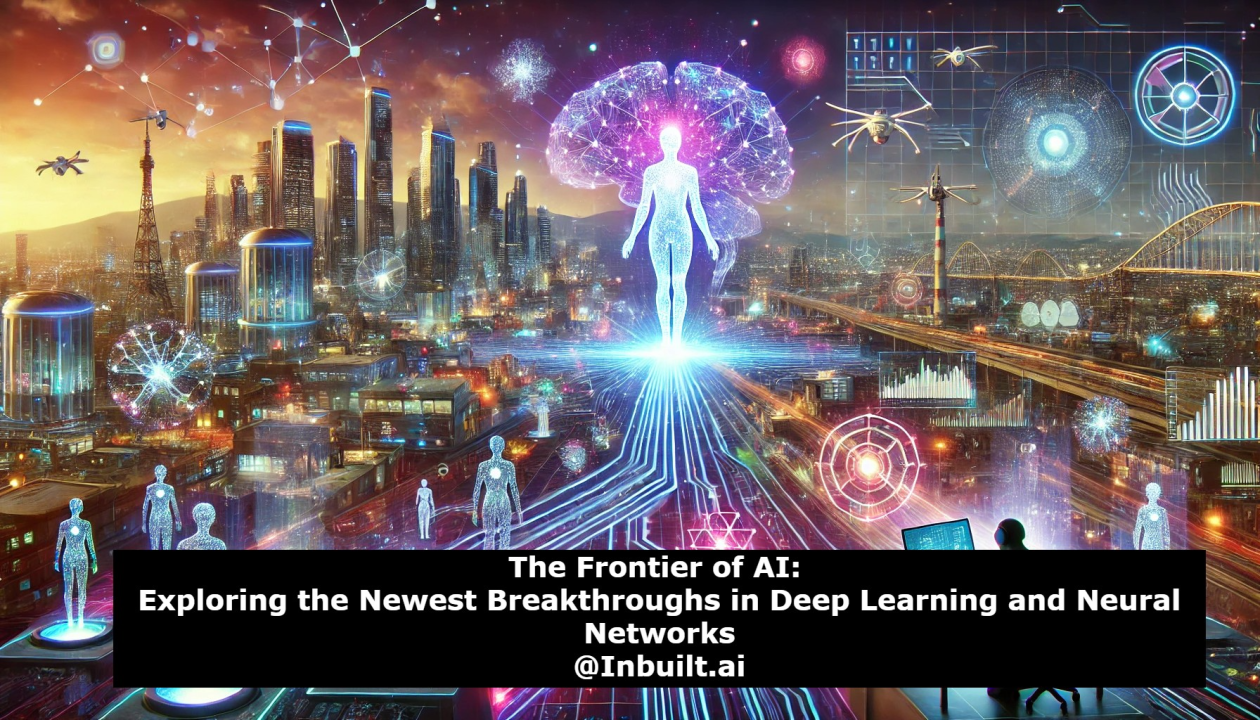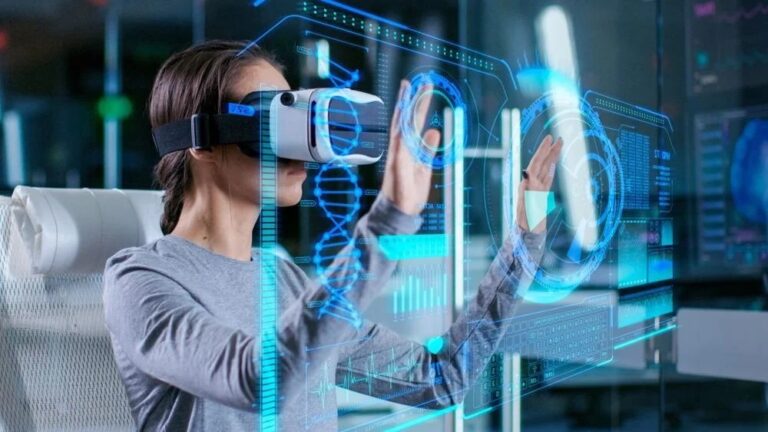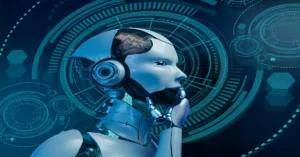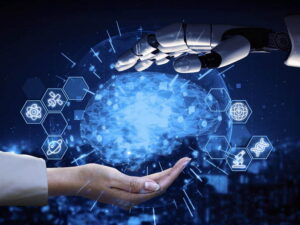The impact of deep learning extends to even more diverse areas, continually pushing the envelope of what can be achieved. Here are additional domains where deep learning is creating groundbreaking advancements.
Deep Learning in Agriculture
- Precision Farming:
- Crop Monitoring: Deep learning models analyze data from drones and satellites to monitor crop health, detect diseases, and assess nutrient levels, enabling precise interventions.
- Yield Prediction: AI predicts crop yields by analyzing historical data, weather patterns, and soil conditions, helping farmers make informed decisions about planting and harvesting.
- Smart Irrigation:
- Water Usage Optimization: Deep learning models optimize irrigation schedules by analyzing weather forecasts, soil moisture levels, and crop needs, conserving water and improving crop yields.
- Automated Systems: AI-driven systems automate irrigation processes, adjusting water delivery in real-time based on data inputs, ensuring optimal water usage and crop health.
Deep Learning in Transportation and Logistics
- Fleet Management:
- Route Optimization: Deep learning models optimize delivery routes by analyzing traffic patterns, road conditions, and delivery schedules, reducing travel time and fuel consumption.
- Predictive Maintenance: AI predicts vehicle maintenance needs by analyzing sensor data, preventing breakdowns and reducing downtime.
- Supply Chain Visibility:
- Real-Time Tracking: Deep learning enhances supply chain visibility by providing real-time tracking of goods, predicting delivery times, and identifying potential delays.
- Inventory Management: AI models optimize inventory levels by predicting demand and managing stock replenishments, reducing excess inventory and stockouts.
Deep Learning in Legal Services
- Document Analysis:
- Contract Review: Deep learning models analyze legal documents and contracts, identifying key clauses, potential risks, and compliance issues, streamlining the review process.
- Case Law Research: AI assists in legal research by analyzing case law, statutes, and regulations, providing relevant precedents and legal insights.
- Legal Predictions:
- Case Outcome Prediction: Deep learning models predict case outcomes by analyzing historical data, court decisions, and legal arguments, helping lawyers develop effective strategies.
- Sentiment Analysis: AI analyzes sentiment in legal documents, witness statements, and courtroom interactions, providing insights into case dynamics and jury perceptions.
Deep Learning in Space Exploration
- Astrophysics Research:
- Galaxy Classification: Deep learning models classify galaxies and celestial objects by analyzing astronomical data, helping researchers understand the structure and evolution of the universe.
- Exoplanet Detection: AI analyzes data from telescopes to detect exoplanets, identifying potential candidates for further study and exploration.
- Spacecraft Navigation:
- Trajectory Optimization: Deep learning optimizes spacecraft trajectories by analyzing gravitational forces, fuel constraints, and mission objectives, improving mission efficiency and success rates.
- Autonomous Navigation: AI enables autonomous navigation of spacecraft by analyzing sensor data and making real-time adjustments, reducing the need for ground control interventions.
Deep Learning in Insurance
- Risk Assessment:
- Customer Profiling: Deep learning models analyze customer data to assess risk profiles, determining insurance premiums and coverage options tailored to individual needs.
- Fraud Detection: AI detects fraudulent claims by analyzing patterns and anomalies in insurance data, reducing losses and improving claim processing efficiency.
- Claim Processing:
- Automated Claim Approval: Deep learning automates the claim approval process by analyzing documentation, images, and policy details, speeding up claim settlements.
- Damage Assessment: AI models assess damage from accidents, natural disasters, and other incidents by analyzing images and data, providing accurate and timely evaluations.
Deep Learning in Tourism and Hospitality
- Personalized Travel Experiences:
- Recommendation Systems: Deep learning models analyze customer preferences and behaviors to provide personalized travel recommendations, enhancing the travel experience.
- Dynamic Pricing: AI optimizes pricing for flights, hotels, and activities by analyzing demand, seasonality, and competitor pricing, maximizing revenue and occupancy rates.
- Operational Efficiency:
- Resource Management: Deep learning models optimize resource allocation in hotels and resorts by predicting demand and managing staffing, inventory, and services.
- Customer Service: AI-powered chatbots and virtual assistants provide real-time support to travelers, handling inquiries, bookings, and recommendations, improving customer satisfaction.
Deep Learning in Food Industry
- Food Safety and Quality Control:
- Contaminant Detection: Deep learning models detect contaminants and pathogens in food products by analyzing sensor data and images, ensuring food safety and compliance.
- Quality Inspection: AI enhances quality control by inspecting food products for defects, inconsistencies, and spoilage, maintaining high standards and reducing waste.
- Product Development:
- Flavor Prediction: Deep learning models predict flavor profiles and consumer preferences by analyzing ingredient combinations and sensory data, aiding in the development of new food products.
- Nutritional Analysis: AI analyzes nutritional content and health benefits of food products, helping companies develop healthier and more nutritious options.
Deep Learning in Fashion and Retail
- Trend Analysis:
- Fashion Forecasting: Deep learning models analyze social media, runway shows, and market trends to predict upcoming fashion trends, helping brands stay ahead of the curve.
- Customer Preferences: AI analyzes customer preferences and purchase behaviors to inform product design and marketing strategies, ensuring alignment with consumer demands.
- Virtual Fitting Rooms:
- Try-On Technology: Deep learning models enable virtual try-ons by analyzing body measurements and creating realistic 3D models, enhancing the online shopping experience.
- Size Recommendations: AI provides personalized size recommendations by analyzing customer data and purchase history, reducing returns and improving customer satisfaction.
Deep Learning in Telecommunications
- Network Optimization:
- Signal Processing: Deep learning enhances signal processing by reducing noise, correcting errors, and improving data transmission quality, ensuring reliable communication.
- Capacity Management: AI predicts network traffic patterns and optimizes capacity, preventing congestion and ensuring high-quality service for users.
- Customer Service:
- Chatbots and Virtual Assistants: AI-powered chatbots provide instant support to customers, handling inquiries, troubleshooting issues, and improving customer satisfaction.
- Sentiment Analysis: Deep learning models analyze customer interactions to gauge sentiment and identify areas for service improvement, enhancing customer loyalty and experience.
Conclusion
Deep learning’s transformative power continues to extend into new and diverse fields, from environmental conservation to space exploration, redefining how we approach challenges and innovate solutions. As we delve deeper into this technology, maintaining a focus on ethical considerations, inclusivity, and sustainability will be crucial to ensure that its benefits are realized across all sectors of society. By fostering collaboration and leveraging the vast potential of deep learning, we can look forward to a future enriched by technological advancements that drive progress, efficiency, and human well-being.





+ There are no comments
Add yours